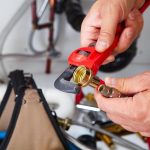Water damage is when excess water finds its way in areas it is not supposed to causing the damage. The water may come from a number of sources. When one is aware of the most common sources of water damage, it would be easier to prevent the damage from happening. Water damage leads destruction of property and health problems. When you are faced with a water damage situation, you are advised to get help from professional Water Damage Restoration Ankeny. For future prevention measures, you will need to know the probable causes of water damage.
Bursting or Leaking Pipes
Burst pipes are among the most common causes of water damage. Sometimes, the toilet might also backup and flood. Toilet backups are not only water damage culprits but they are also major health hazards. You can avoid pipes from bursting by doing a regular check on leaking pipes or weak points that might lead to bursts. Also, avoid habits that might lead to the clogging of your toilet.
Natural Disasters
Heavy rains leading to floods might also lead to water damage. Some are controllable and others are beyond any one’s control. You can start by making sure that your gutters and outside drainage are well functioning before the rainy seasons and make sure you repair leaking roofs. Severely flooded areas need professional water restoration to take care of the aftermath of the floods.
Faulty Home Appliances
Home appliances might become faulty or too old and their continuous usage might lead to water damage. Some of the most common appliances that lead to water damage include tank water heaters and washing machines. To avoid any problems with any of the appliances, ensure that you do the required maintenance and repair services to avoid surprises.
Water Damage Restoration
Once you inform Water Damage Restoration Ankeny IA service of your situation, they will start by doing a general survey of the damage. The restoration process begins by pumping out the water and salvaging your items. The professionals then take the salvageable and restore them to their initial condition.
If you are insured, the whole process will be financed by your insurer and they will also pay the non-salvageable items.





